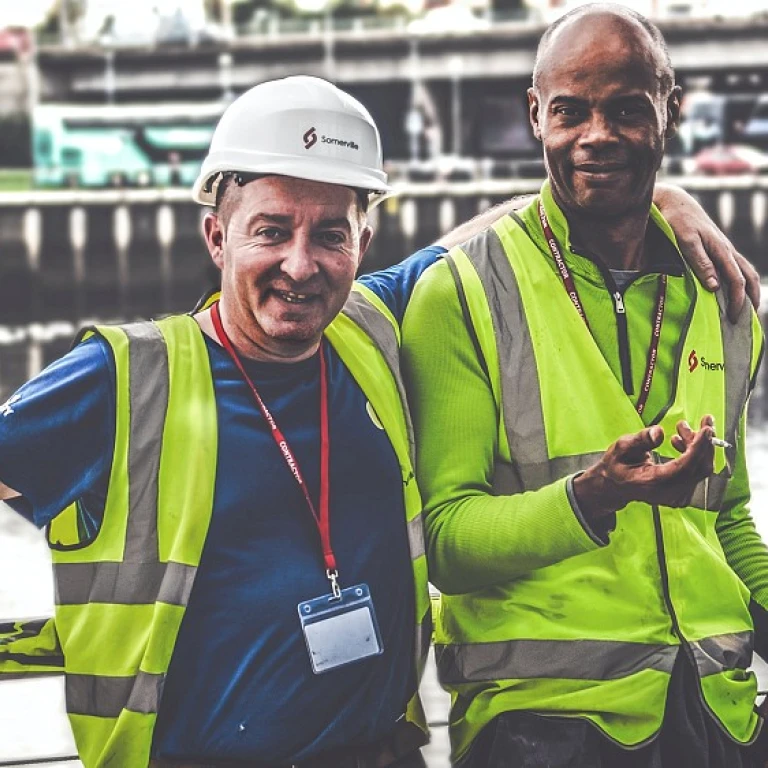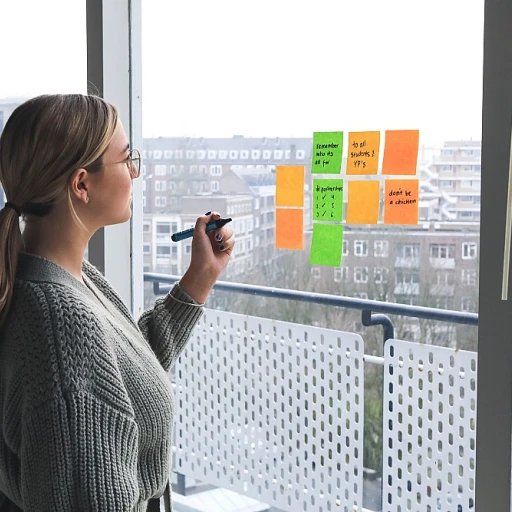
Understanding the Millennial Worker
The Unique Characteristics of Millennials in the Workplace
Millennials, often characterized as the tech-savvy, purpose-driven cohort, bring a distinct set of values and expectations to the workplace. Understanding these characteristics is crucial for fostering a successful work environment for this generation. Born into a rapidly evolving digital age, millennial workers have developed unique expectations for their careers that differ significantly from their predecessors.Purpose and Meaning Over Paychecks
For millennials, a job is more than just a paycheck. They are driven by purpose and crave meaningful work. This generation seeks employers who align with their values and who provide opportunities to make a genuine impact. Creating roles that offer more than financial compensation can significantly enhance employee retention.The Importance of Feedback and Recognition
Regular feedback and recognition are not just desired but expected by millennial workers. This generation thrives on knowing how they are performing and contributing to the organization's success. Implementing effective feedback systems can lead to a more engaged and motivated workforce. Understanding these unique characteristics of millennials can provide valuable insights into how to create an environment that fosters long-term commitment and loyalty. By recognizing the importance of purpose and appreciating the need for ongoing feedback, organizations can create a compelling workplace that attracts and retains millennial talent. For more strategies on keeping your team happy and productive, take a look at this guide.Creating a Positive Work Environment
Fostering a Supportive Work Culture
Creating a positive work environment is not just about having a cheerful office space or offering occasional perks; it deeply involves fostering a supportive work culture where millennials feel valued and integral to the organization. This generation of workers craves a sense of purpose and inclusion, making it crucial for employers to promote collaboration and transparency. To cultivate this environment, leaders should encourage open communication and regular feedback. Millennials appreciate their voices being heard and opportunities to contribute to decision-making processes. This not only empowers them but also builds a sense of trust and loyalty towards the organization. Furthermore, recognizing achievements and offering constructive feedback is essential in motivating millennial employees. Ensure that recognition programs are fair, consistent, and inclusive, as these can greatly enhance job satisfaction and help in retaining talented individuals within the team.Building a Community at Work
Millennials often value a sense of belonging within the workplace. Organizing team-building activities and social gatherings can bridge the gap between colleagues and create a more cohesive team. These social interactions not only improve interpersonal relations but can also lead to increased creativity and innovation as employees become more comfortable sharing ideas. Additionally, implementing mentorship programs can be highly beneficial. Pairing younger employees with experienced mentors fosters personal and professional growth, while also strengthening the organizational community. Incorporating initiatives such as employee resource groups can further enhance the workplace community by offering platforms to discuss common interests or challenges. This inclusive approach not only celebrates diversity but also lays the foundation for an engaged and committed workforce. For more insights on how small businesses can keep their employees happy and engaged, consider exploring this insightful blog post.Professional Development and Career Growth
Advancing Millennials' Careers
In order to maintain a happy and engaged millennial workforce, it's crucial to focus on their professional development and career growth. Millennials, with their unique blend of ambition and digital savviness, are known for their desire to achieve meaningful career progress. One cannot overlook in today's competitive job market the importance of providing substantial opportunities for skill enhancement and advancement. To meet millennials' expectations, companies should establish a framework for continuous learning. This can include offering access to workshops, seminars, and online courses that allow employees to develop skills that are not only relevant to their current roles but also significant in the larger context of their career aspirations. Having a transparent promotion track and regular performance feedback can significantly contribute to Millennials feeling valued and seen, which can foster loyalty. Moreover, mentorship programs can offer these young workers the guidance and support they seek. Pairing millennials with experienced mentors can help them navigate career paths, clarify goals, and gain valuable insights into leadership, all of which are integral to their professional growth. Such initiatives not only enhance an individual's career prospects but also instill a sense of belonging and investment in the company. To delve deeper into how a positive work culture can boost both employee happiness and loyalty, which is crucial for retaining millennials, companies can implement various initiatives as explored in earlier sections of this series. Creating a conducive work environment that values progression and personal growth is a powerful tool in retaining millennial employees and ensuring their long-term commitment to the organization.The Role of Flexibility and Work-Life Balance
Embracing Flexibility in the Modern Workplace
In today's fast-paced work environment, flexibility is no longer just a perk; it's a necessity, especially when it comes to retaining millennial employees. This generation values the ability to balance their professional and personal lives more than any before. By offering flexible work arrangements, companies can significantly enhance job satisfaction and loyalty among their millennial workforce.
Flexible work options can take many forms, from remote work opportunities to adjustable working hours. These arrangements empower employees to tailor their work schedules to fit their personal needs, ultimately leading to increased productivity and reduced stress levels. For millennials, who often prioritize experiences and personal growth, having the freedom to manage their time is a significant draw.
Moreover, flexibility fosters a sense of trust and autonomy, which are crucial for maintaining engagement and motivation. When employees feel trusted to manage their own schedules, they are more likely to take ownership of their work and contribute positively to the company culture. This autonomy aligns with the values discussed in our earlier sections on creating a positive work environment and understanding the millennial worker.
Implementing flexible work policies also supports work-life balance, a key factor in preventing burnout and ensuring long-term employee retention. By recognizing and accommodating the diverse needs of their workforce, companies can create a more inclusive and supportive workplace, as highlighted in our section on diversity, equity, and inclusion.
Leveraging Technology for Engagement
Harnessing the Power of Digital Tools for a Connected Workforce
In the ever-evolving landscape of workplace dynamics, leveraging technology has become a crucial element in employee engagement, especially when it comes to retaining millennial talent. This generation, often characterized by their digital nativity, expects employers to provide efficient and intuitive digital solutions that enhance productivity and connection, both among colleagues and with the organization.
Many companies have turned towards communication and collaboration platforms, such as Slack, Microsoft Teams, or Zoom, to ensure seamless interaction regardless of geographic barriers. These tools help recreate the convenience of face-to-face meetings, supporting flexible work arrangements that millennials appreciate. This not only fosters a cohesive team environment but also caters to the flexibility discussed earlier in our conversation about work-life balance.
Further, performance management software can be utilized to track progress, recognize achievements, and identify areas for development. These insights help millennial employees understand their growth trajectory, correlating directly with their desire for professional development and career advancement. Engaging employees in such a technologically integrated manner ensures they remain motivated and aligned with the company’s goals.
Another digital avenue that can ignite millennial engagement is gamification. By incorporating game-like elements in work processes, employers can make tasks more engaging and rewarding. Whether it’s through virtual badges, leaderboards, or interactive learning modules, gamification taps into the competitive and cooperative spirit of millennials, making mundane tasks more appealing.
To truly capture the essence of technology-driven engagement, organizations need to maintain an open channel for feedback. Allowing millennials to voice their opinions on the digital tools they use ensures the technology remains user-centered, driving satisfaction and retention in the process.
The integration of the right technological tools not only nurtures a positive work atmosphere but also boosts productivity and enhances the overall employee experience. As organizations continue to embrace digital transformation, keeping the millennial workforce connected and content could be the key to long-term retention and success.









